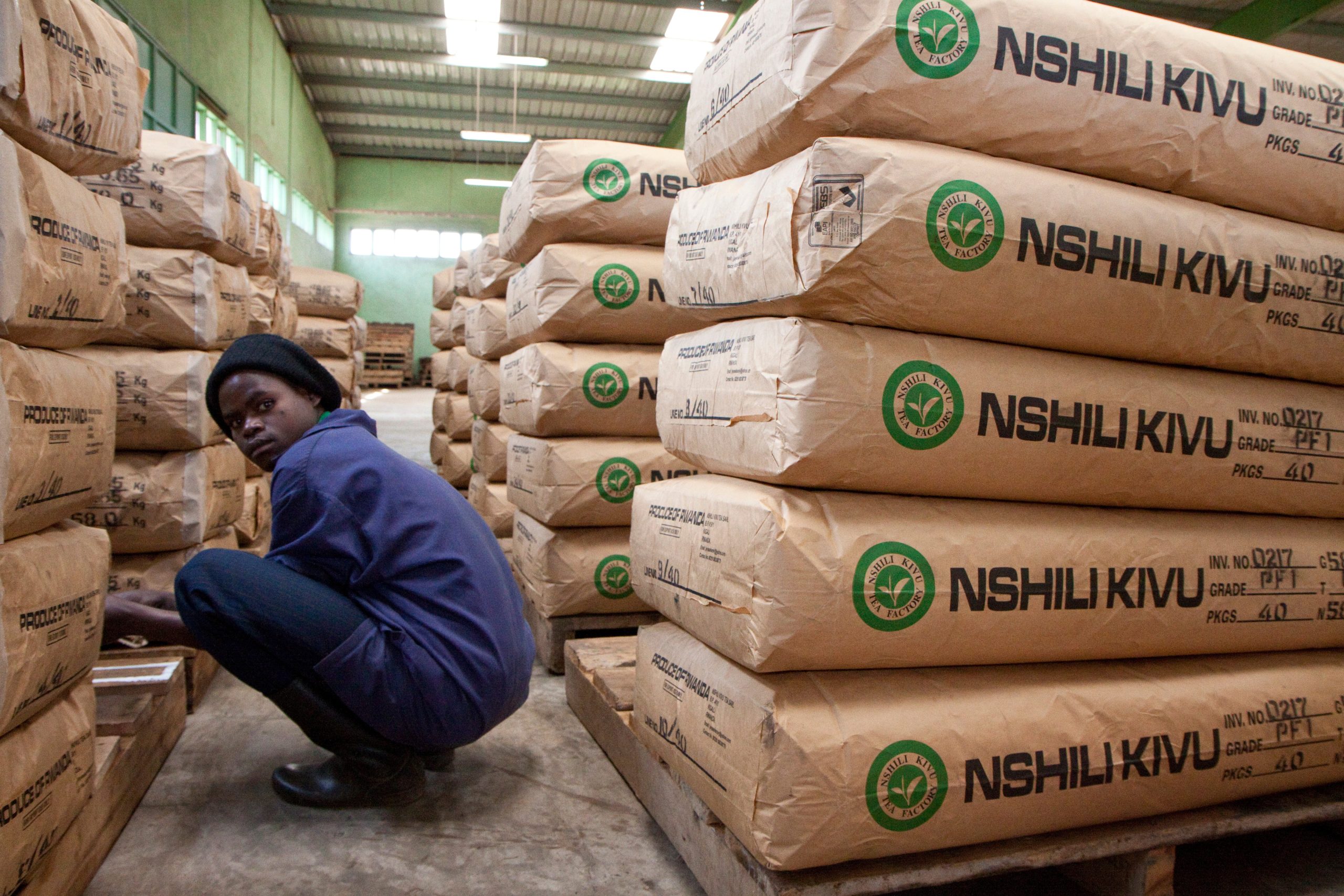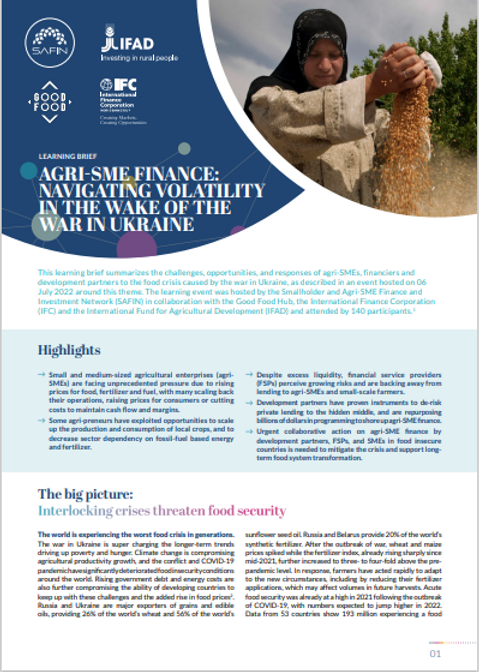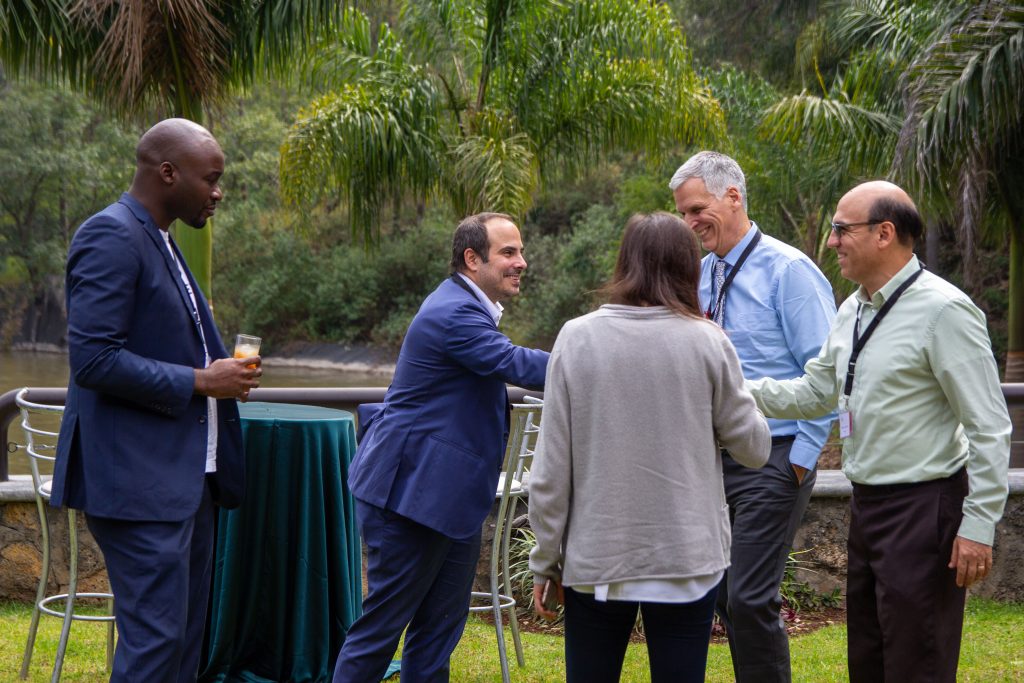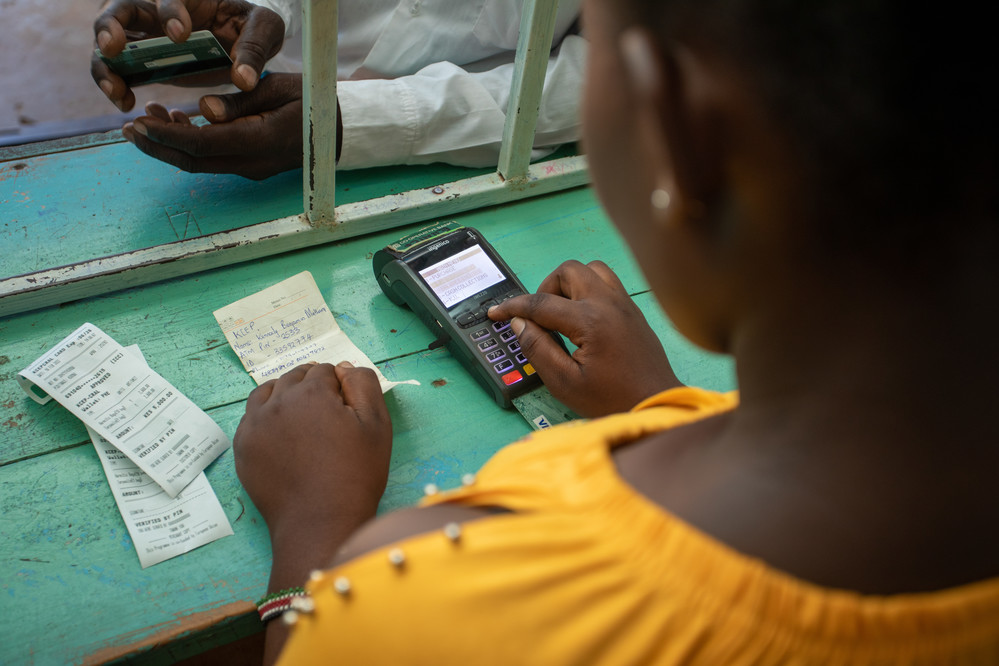Since I took on the post of interim Senior Coordinator of the Smallholder and Agri-SME Finance and Investment Network (SAFIN), I am frequently surprised by the power that networks have to convene the right people for collective transformation. This was in full display at a recent convening on 06 July 2022, where SAFIN, the Good Food Hub, the International Finance Corporation (IFC) and the International Fund for Agricultural Development (IFAD) convened agri-SMEs, financiers, and development organizations to discuss the challenges, opportunities and responses to the food crisis caused by the ongoing war in Ukraine.

Photo Credits: IFAD/Susan Beccio
The SAFIN team is proud to be have gathered such a dynamic group of well-informed speakers to exchange views on this topic at such a critical moment in time. SAFIN was well-positioned to host the discussion- as the only global network of diverse members focused on access to finance for agri-SMEs. During the event, we felt that we were experiencing a potentially momentous occasion for the network, opening opportunities for the network to play a pivotal role in the developing crisis. The key learnings from this event have been captured in a technical note, just published on our website.
It has now become conventional wisdom that the war, the COVID-19 pandemic and worsening climate crisis are creating a perfect storm with potentially catastrophic outcomes including food shortages, rising prices for fuel, inputs and staple crops, declining productivity and ultimately increased hunger particularly for the rural poor. Although much is known about the current effects of the war from a macro view, there is still much to learn about their effects on the agri-SMEs that play key roles in the marketing, processing, and distribution of agricultural goods and services.
We know for example that enterprises that rely heavily on imported chemical fertilizers may be directly affected by the rising prices of these key inputs. We also know that SMEs operating in food-based value chains and in countries with heavy reliance on wheat imports are being forced to scale back their operations. However, there could also be new opportunities for agri-preneurs as some seek locally produced alternatives to imported inputs or pivot towards the use of domestic crops. The situation continues to evolve and much is yet to be known about how the crisis will impact the business performance of agri-SMEs in the long run.
The impact that these events will have on the ability of SMEs to access appropriate and timely finance to drive their growth and sustainability is one area of particular concern. Initial anecdotal evidence reflects a mixed scenario, with some local financiers based in countries that rely heavily on key imports tightening credit in a “wait and see” approach, while others proceed with business as usual. There is no evidence yet of major retractions in the delivery of finance to agri-SMEs, but there are concerns that the increased focus on financing production may drive attention away from building climate resilience or other opportunities along agricultural value chains. Nevertheless, financial sector responses may evolve depending on local regulations and policies in response to the crisis”.
So what is next for SAFIN?
This learning event was a launching pad to further support our network partners to understand the effects of the crisis and identify or co-develop potential solutions. Going forward, SAFIN will work with interested partners to gather more empirical evidence on how agri-SMEs are weathering the storm from a country and value chain perspective and to better understand the perceptions and plans of local lenders. To help us move the needle further, we request our partners to continue sharing any relevant information or updates on this subject on our dedicated resource page.
“If you were a food entrepreneur, would you currently be investing in local supply chains?” Ian Randall, Director of the Good Food Hub, asked this of Madhur Gautam, the World Bank’s Lead Agricultural Economist during the event. His response – an emphatic “Yes!”
In a volatile world where confidence is shaky, perhaps we need a global campaign to convince SMEs and financial service providers of Madhur’s sentiment, and to persuade development partners to back them with smart policies and de-risking instruments.
Together, we might convert this crisis into a better future for food.


